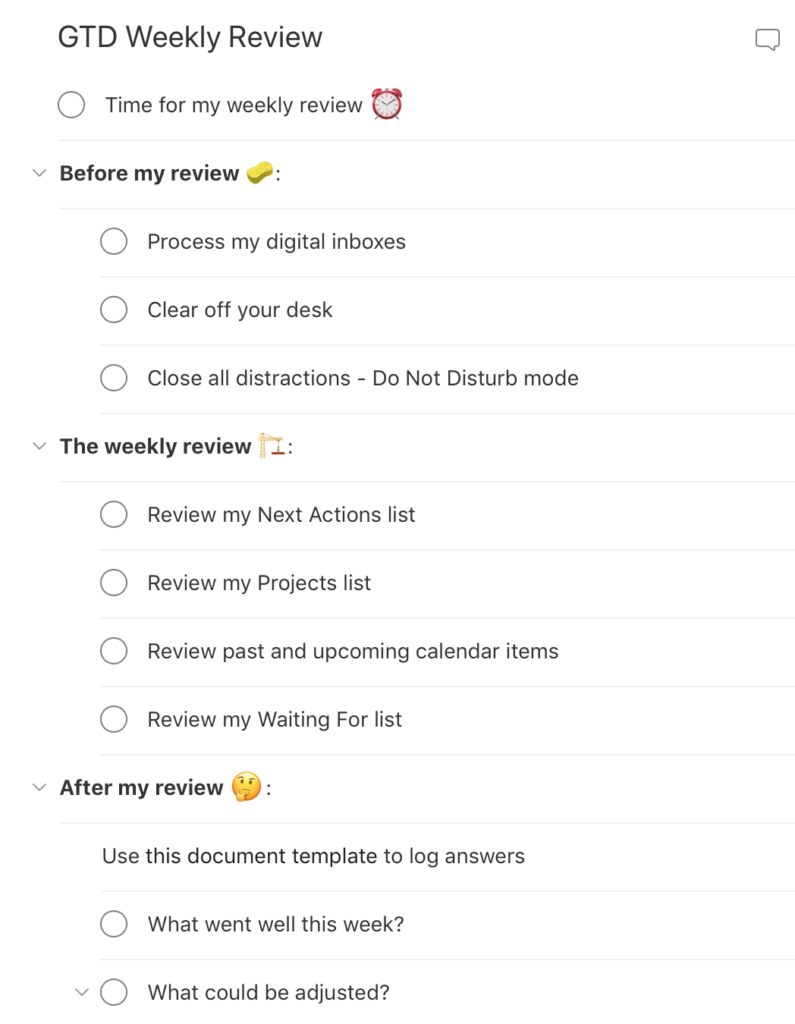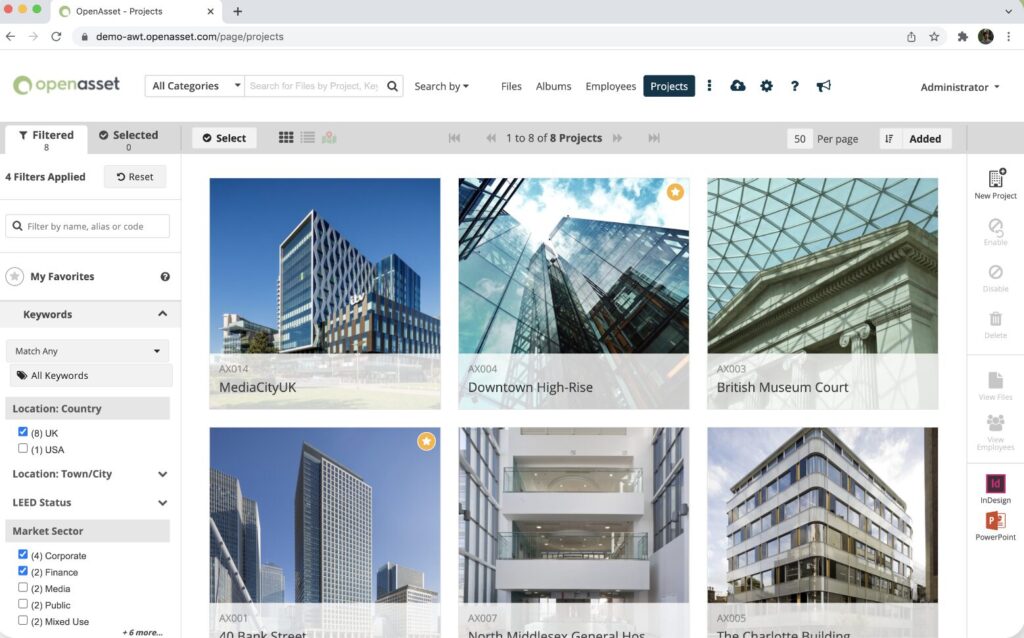6 Tips for Managing High-Pressure Deadlines

Deadlines are a universal necessity in every industry. They come with a sense of pressure that can leave you feeling anxious, stressed, and overwhelmed. It’s no wonder these feelings can take a toll on your productivity and your health— but they shouldn’t have to.
Fortunately, there are ways you can deal with high-pressure deadlines efficiently to decrease the high pressure surrounding them.
In this blog, we’re going to share six tips for managing high-pressure deadlines. These tips aim to reduce your feelings of anxiety and stress for a healthier and more productive balance in your work life.
How to Manage High-Pressure Deadlines With Ease and Efficiency
Here are six ways to ease your nerves and make work feel more manageable:
1. Create a Checklist
It’s normal to feel overwhelmed when you have a heavy workload and tight deadlines. So normal, in fact, according to workplace stress statistics, 83% of US workers suffer from work-related stress, with 25% saying their job is the number one stressor in their lives. Additionally, about one million Americans miss work each day because of stress.
One way to take away from these scary statistics? By making projects more manageable.
When you’re under pressure, your mind can become cluttered. Simplify your tasks by creating a detailed checklist of what needs to be done. Break down each project into smaller, manageable tasks and tick them off as you complete them.
Organizing your tasks and creating structure around them feels good. This not only provides a clear roadmap of what needs to be done but also offers a sense of accomplishment with each tick, boosting your motivation and focus. Psychology research shows that when we tick off tasks, our brains release dopamine which causes positive feelings such as happiness, pleasure, and motivation.

| TIP: Improve your productivity by leveraging checklist apps and check out the 7 best to-do list apps in 2024 by Zapier. |
2. Prioritize the Most Difficult Tasks
Review the checklist you made. Assess the urgency and complexity of each task and prioritize accordingly. Which tasks will you take on first? Research suggests tackling the hardest tasks when your energy is at its peak.
Research on workplace productivity conducted at the Kellogg School of Management at Northwestern University shows that people naturally gravitate toward the easy tasks on their to-do lists—think jotting a quick email or returning a call— yet, choosing to tackle the most challenging ones is a better idea. Why? It gives an almost immediate sense of accomplishment, which motivates us to do more.
While addressing simple tasks like responding to emails or issuing invoices early in the day may provide an immediate sense of achievement, research on task selection and workload suggests that prioritizing these less demanding tasks first could negatively impact your productivity over time.
Moreover, dealing with the most challenging tasks first reduces the pressure as the deadline approaches and prevents last-minute panic. This approach ensures that you’re dedicating your best hours to the most critical work.
So instead of knocking out the little stuff first, choose the tasks that take the longest or require the most brainpower.
3. Create Fake Deadlines
Is your project due by the end of the day on Friday? Instead of planning to deliver at 5 pm that day, plan for finishing at the end of the day on Thursday. Set your deadlines a day or two earlier than the actual due date.
It may sound ridiculous to give your stressed-out self an even tighter deadline, but the reality is that it can save you a lot of stress and increase the odds of you meeting the actual deadline. And, it’s nice to have more time if you end up needing it.
This psychological trick can provide a buffer for any unforeseen circumstances and reduce last-minute stress. Treating these fake deadlines as real ones gives you some leeway to refine and review your work, ensuring quality and timeliness.
4. Leverage Your Tech Stack to Create Efficiencies
Does your company leverage any technology that can help you save time? Consider leveraging a project management tool like Asana or Wrike to help your team collaborate or try a communication tool like Slack to get quick info and feedback from your team.
Having trouble finding the files you need? Consider investing in a cloud-based solution, like a Digital Asset Management (DAM) tool, so everyone can easily and quickly find what they need.
Teams experiencing high-stress levels, on average, take 13 extra hours per RFP compared to teams with manageable stress levels. Yet, this additional time invested in RFPs doesn’t always lead to better success rates. In fact, teams under significant stress typically have a win rate that’s 3% lower than that of their less-stressed counterparts.
While stress in the workplace is unavoidable, implementing the right tools can alleviate its impact and ultimately reduce the long-term associated costs for businesses.
Whether it’s project management systems, collaboration tools, or DAM software, the right tech stack can save you valuable money, and time, and reduce the pressure of tight deadlines.

5. Take a Quick Break
This may sound counterintuitive for meeting deadlines, but sometimes it helps to stop and walk away for a little while. Step away from your work for a few minutes, stretch, take a walk, or practice deep breathing. These quick breaks can help clear your mind, reduce stress, and maintain a high level of performance throughout the day.
Not convinced? A study by the Draugiem Group found that employees who took consistent breaks were more productive than their peers. The study concluded the ideal work rhythm was 52 minutes of work, followed by a 17-minute break. Other research also proves that breaks for increasing well-being and performance.
6. Ask For Help
Deadlines can feel a lot more stressful if you’re facing them alone. Don’t be afraid to ask for assistance. We underestimate just how willing people are to assist others and how positive they feel about doing so.
However, remember that to receive help, you have to ask. Asking for help is hard, but people want to help more than we realize. In fact, estimates suggest that 75% to 90% of the help coworkers give each other is in response to a direct ask. What are you waiting for?
Here are several ways that you can get support from your colleagues:
- Share your workload: If you ask your colleagues, there may well be a chance that someone has time that they can dedicate to help you with your project.
- Get advice: By working as a team and asking for help, you might find shortcuts and ways of doing things that will save you time and help you meet your deadlines.
- Ask for an extension: A deadline isn’t always set in stone; if you don’t feel able to meet a deadline, it’s worth asking for an extension.
- Don’t over-promise: Communication goes both ways. If you’re given a deadline, don’t immediately say yes if you don’t think it’s achievable.
Delegate tasks when possible, seek advice or simply discuss your progress with someone you trust. Sharing the load can provide new perspectives, spark creativity, and ensure you’re not carrying the burden alone. Remember, asking for help is a sign of strength, not weakness.
Bonus Tip: Get Into Good Habits
When managing high-pressure deadlines, building structure, routine, and good habits into our daily lives can go a long way. How exactly can you do this?
Getting a good night’s sleep comes with huge benefits. When you are well-rested, you have better memory, stamina, and focus. Try to go to sleep at roughly the same time each night and let your body restore.
Additionally, keep your work area organized. A tidy work area relates to a tidy brain. By keeping everything organized, you reduce the number of distractions and enable yourself to focus on the task at hand.
Moreover, eat a healthy and balanced diet to keep your body well-nourished with the right types of food. Make sure you don’t skip any meals and keep your body topped up with all the nutrients it needs to keep you on form.
By having routine and structure in your working life, you’ll know what tasks you need to complete and when to reach your deadlines.
Manage High-Pressure Deadlines With OpenAsset
Unfortunately, managing high-pressure deadlines may never vanish. So, leverage the tools you have, take a deep breath, and control what you can. There’s a lot you can do to feel better about your workload and the deadlines attached to it, including implementing a DAM system like OpenAsset.
Unlike traditional DAM systems, OpenAsset is a project-based DAM solution specifically designed for AEC professionals. With dozens of integrations and useful features, OpenAsset is the martech you need to create high-converting content, proposals, and much more. Request a demo today to get started.
The post 6 Tips for Managing High-Pressure Deadlines appeared first on OpenAsset.